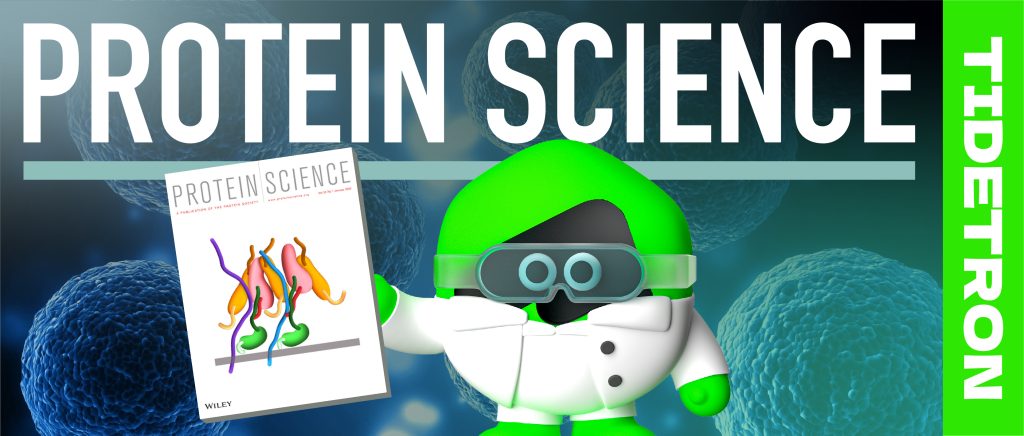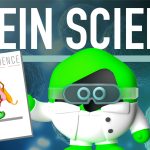
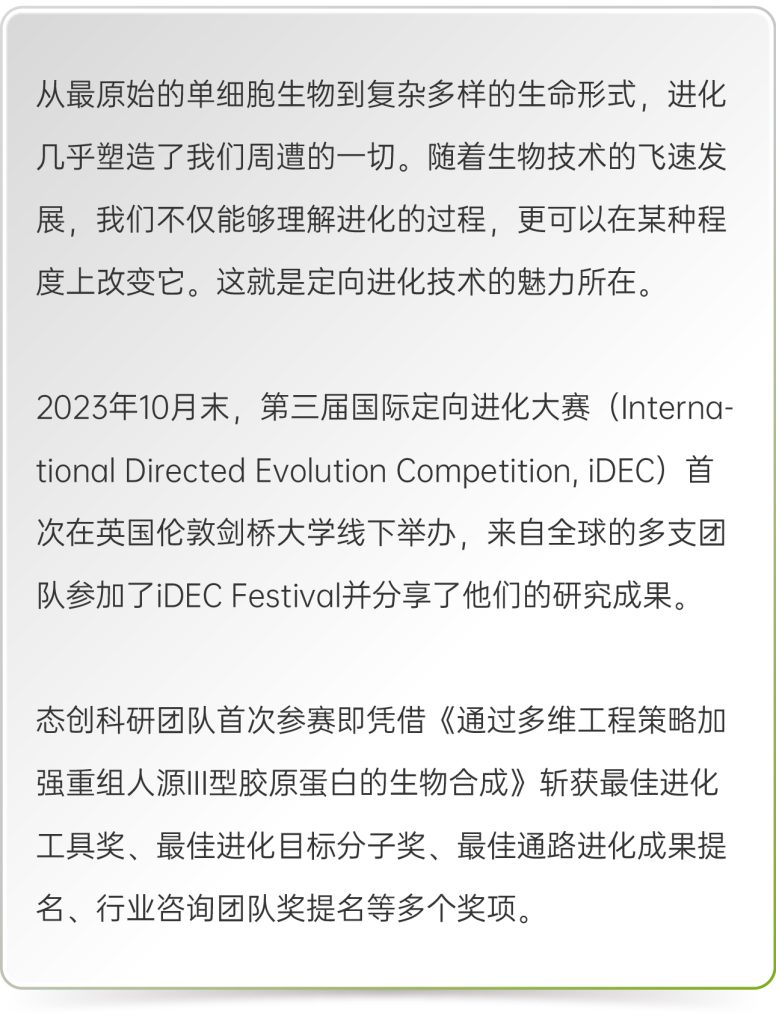
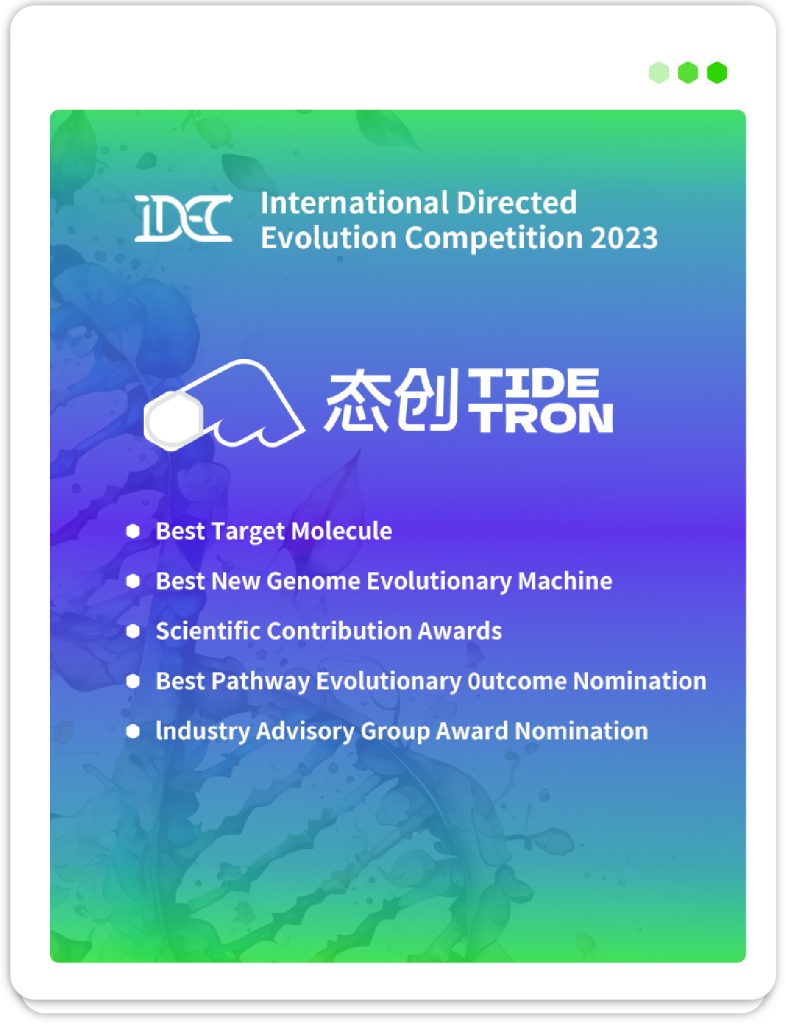

In synthetic biology, biological components are regarded as basic units with specific functions, such as promoters, ribosome binding sites (RBS), transcription factor binding sites (TFBS), and so on. These components can be combined and designed to create new biological systems.
Biological components obtained by traditional means by tapping into natural biological systems often fail to perform as required. The use of rational design to develop entirely new biological components has potential but is currently limited by design capabilities.
Therefore, the modification and optimization of existing components to obtain the required functions through directed evolution has become a key platform technology in the field of synthetic biology. iDEC was born with the aim to promote the technological innovation and application of directed evolution, to establish a scientific community for the field of directed evolution with the main focus on young people, and to enrich the types of disciplinary competitions in the field of life sciences.

The international competition is co-sponsored by scholars and students from the University of Edinburgh, Imperial College London, the MRC Laboratory of Molecular Biology (LMB) in Cambridge, and the Shenzhen Institute of Advanced Studies (SIAS) of the Chinese Academy of Sciences (CAS) in 2021. The competition is "open source" and provides an excellent platform for researchers in the fields of synthetic biology and directed evolution to communicate and collaborate.

At this year's iDEC, the Ecotron research team shared the results of "Enhancing the biosynthesis of recombinant human type III collagen through a multidimensional engineering strategy".
Usually, collagen has specific requirements for amino acids, protein modifications, and repeat structures, but certain microorganisms such as Escherichia coli lack proline hydroxylase and cannot obtain hydroxylated collagen when expressing collagen alone to effectively form a triple helix structure, thus limiting collagen biosynthesis.
In response, the Ecotron research team has developed a multi-dimensional engineering strategy to improve collagen synthesis by combining more than ten cutting-edge technologies, including PANCE, ARTP, and Circ-mRNA.
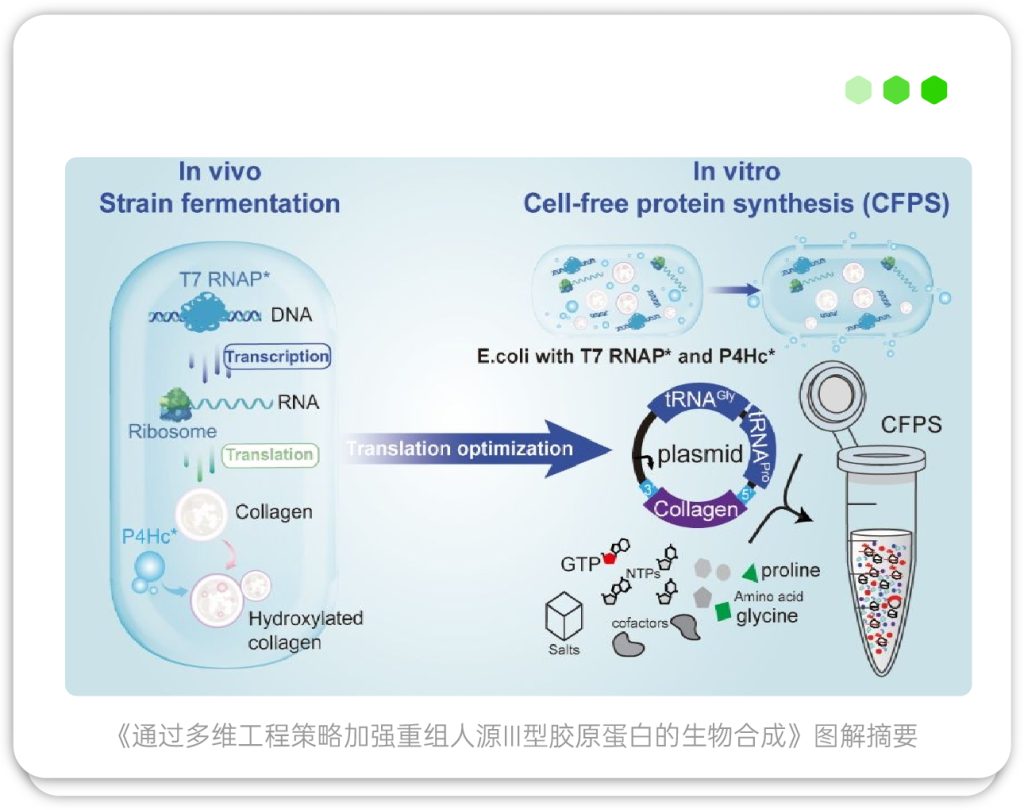
At the transcriptional level, a phage-assisted discontinuous evolutionary approach was optimized to obtain T7 RNA polymerase mutants (K345E and P474L) with a 2.3-fold increase in the transcription efficiency of the CO3A1 (type III collagen α1 chain) gene.
At the post-translational modification level, 19 single-subunit prolyl 4-hydroxylase (P4H) enzymes were screened using a structure-based protein clustering approach, and a fluorescence-activated droplet sorting method was developed to screen moumouvirus P4Hc mutants with 2.6-fold hydroxylation of the mutant activity of the CO3A1 protein in combination with the targeted enzymatic mutation.
In addition, an in vitro cell-free protein synthesis system was improved using metabolic compensation and spinoribonuclease at the RNA stability and translation levels, resulting in greatly increased CO3A1 and ELN (elastin) yields. These findings have important implications for the industrial production of collagen.
At present, Statechip has made good progress in the structure, activity and efficacy of recombinant human type III collagen. In order to avoid homogenization filling, the company tries longer chain and more stable collagen, as well as gradually penetrating into the application of medical device class.
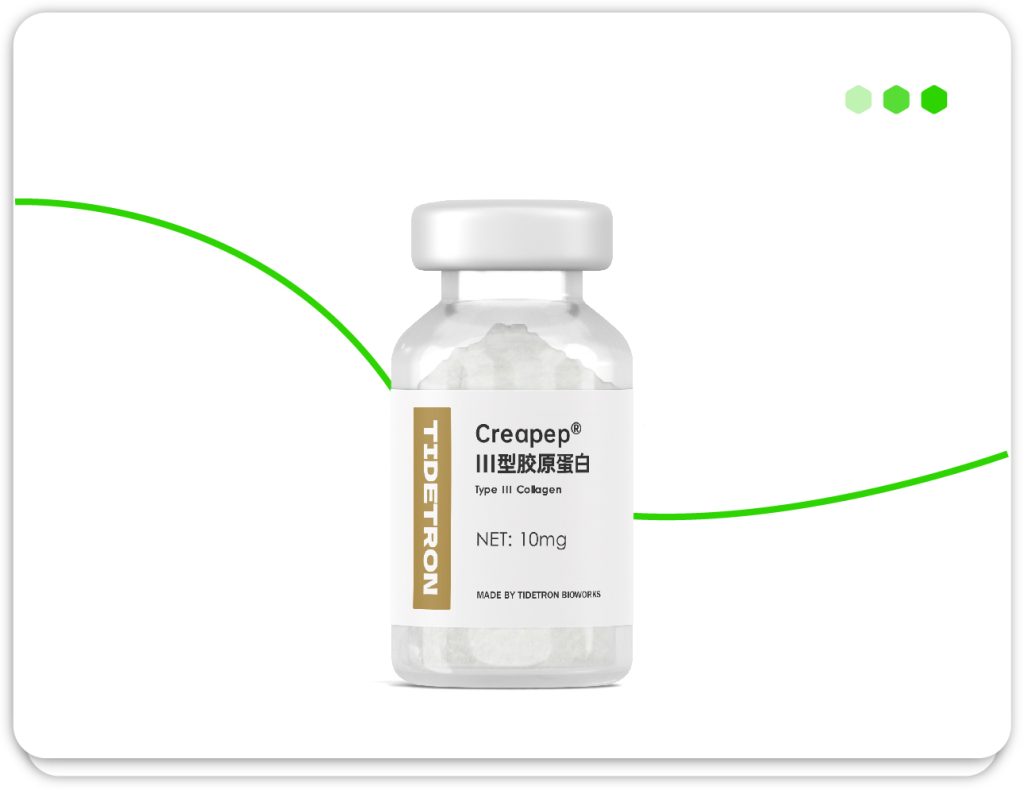

In addition to Directed Evolution technology, Stripe Bio has opened up the synthetic biology DBTL cycle and built the Tidetron Tao automated research and development platform, which contains a platform-based strain and component library and the iTidetron AI engine, which can greatly enhance the efficiency of research and development.
The platform can realize the upstream to help cell engineering construction with strain library and component library, AI prediction, gene editing, etc.; the mid-end focuses on the efficient cyclic operation of the target product synthesis pathway, metabolic route, expression vector, etc., and enhances the efficiency through directed evolution technology, microfluidic platform, etc.; and the downstream builds a perfect pathway of small-pilot-mid-pilot-volume production. This gives the company the ability to mass produce a variety of cross-field products.
Video link -https://weibo.com/7772299062/NsZyQyPyK
At present, under the technological support of Tidetron Tao automated R&D platform, Strike Bio has broken through 50 kinds of raw material products in stock, connected with 100+ factories and brands around the world to meet the needs of medical, food, beauty and security fields, and continuously expanding the global cooperation network to build a global synthetic biology industry ecosystem with partners from academia, peers and industry, and help synthetic biology to replace the traditional manufacturing of "bio-age". We will continue to expand our global cooperation network and build a global synthetic biology industry ecosystem with our academic, peer and industrial partners, so as to help synthetic biology replace traditional manufacturing and move towards the "bio-age" of sustainable development.
Technology to the new, all things grow.



